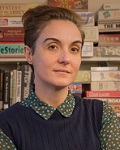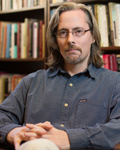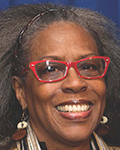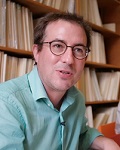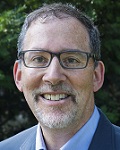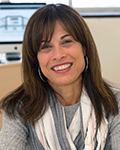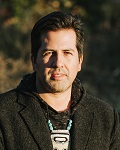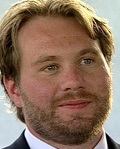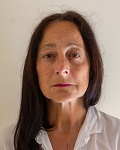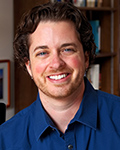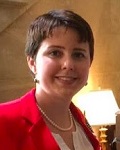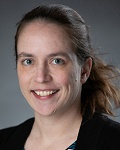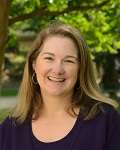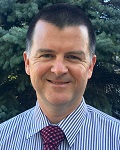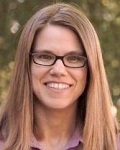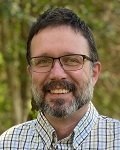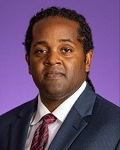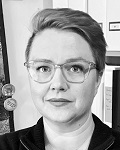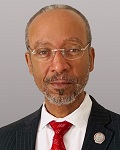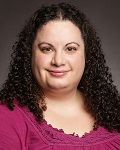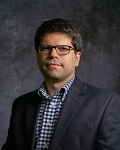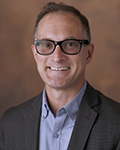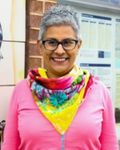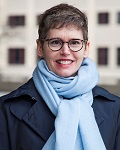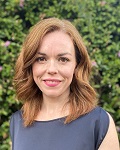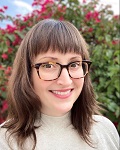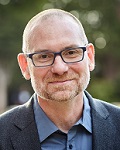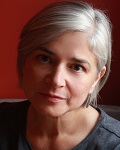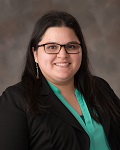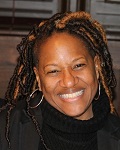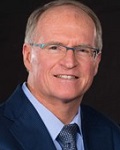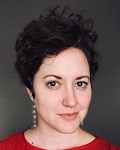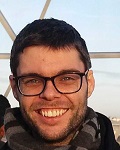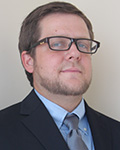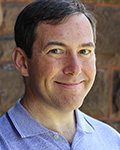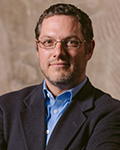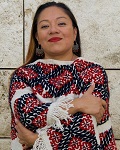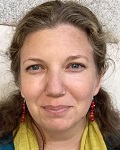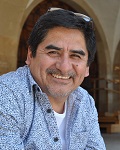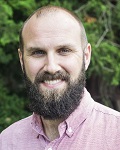ACLS Digital Extension Grants
Arab Data Bodies: Social Media in Mixed Reality
"Arab Data Bodies" is a 360-degree, first-person immersive, virtual and augmented (VR/AR) experience of the Egyptian Uprising of 2011. This data-driven project builds upon nearly one hundred million social media posts in thirty languages (Twitter, Facebook, Instagram, YouTube, and other popular sites) harvested by the R-Shief media system. Through collaboration across two campuses at the University of California (UCSB and UCSC), the project extends the representation of R-Shief’s historical, eleven-year-old archive of social media from two-dimensional data visualizations and adapts it into an immersive experience reenacting Tahrir Square in 2011—downtown Cairo’s main public circle that became a focal point during the uprisings. "Arab Data Bodies" is a mixed reality (MX) world of historical data and public spaces, rich in cinematic non-fiction storytelling and visuality.
Principal Project Team:
Big, Bad Data and the Birth of Death As We Know It: How Our Mortality Became Disciplined to Science, the State, and Actuarial Tables
The public health system of the early United States struggled not just with medical problems—adopting a germ theory of disease, for instance—but with logistical, statistical, and conceptual problems in learning how to aggregate, analyze, and visualize good data. Science, the state, and private industry fly relatively blind until they can “see at scale”; datafication turns out to be one of the least appreciated, and most important, planks in the bridge to modernity. A dramatic scaling up of a project funded by a Digital Innovation Fellowship from ACLS in 2013, “The Birth of Death As We Know It” collects and analyzes a variety of early public health records—coroners’ inquests, mortality censuses, and death certificates—to help lay bare the process by which our modern public health system was born.
Principal Project Team:
Black Book Interactive Project – Extending the Reach (BBIP-ER)
Principal Investigator: Maryemma Graham, University of Kansas. “Black Book Interactive Project: Extending the Reach (BBIP-ER)," based at the University of Kansas, is the first searchable digital collection of previously unavailable African American novels. Created by the Project on the History of Black Writing to address the digital divide, BBIP-ER developed as a collaboration with scholars at the University of Chicago with support from KU’s Institute for Digital Research in the Humanities. As the project continues to add content and descriptive data, it is also expanding the user base both inside and outside the academy and encouraging new working partners in this unique interactive environment. The project has a team of advisors and works with the College Language Association to provide training and access to the collection through a user interface. The result is a diverse learning community where scholars and practitioners can work creatively in producing new knowledge and opportunities for teaching and research.
Collaborators: Textual Optics Lab at the University of Chicago, University of Kansas Institute for Digital Research in the Humanities, College Language Association, and HBCU Library Alliance
Collaborators: Textual Optics Lab at the University of Chicago, University of Kansas Institute for Digital Research in the Humanities, College Language Association, and HBCU Library Alliance
Principal Project Team:
Citations: The Renaissance Imitation Mass
Building upon recent developments in digital music scholarship, Citations: The Renaissance Imitation Mass investigates similarity and borrowing in music on a massive but detailed scale, using digital tools that only a few years ago were beyond our grasp. This work focuses on the craft of musical counterpoint, and how musicians of the sixteenth century transformed pre-existing pieces to make intricate cyclic compositions from familiar sounds. The CRIM team, an accomplished group of scholars and data scientists active in Europe, North America, and Australia, will assemble a diverse collaborative network of music scholars and students at colleges, music schools and university graduate programs, extending the reach of digital scholarship to new users, and building new communities.
Principal Project Team:
Collaborative Curation: Extending the Plateau Peoples’ Web Portal
This project expands the content and extends the reach of the, collaboratively curated and reciprocally managed, Plateau Peoples’ Web Portal by providing access to, and sustainability for, unique cultural materials for Native communities, scholars, educators, and the public. The project engages tribal and federal repository partners in a collaborative effort to add traditional knowledge to minimally described primary sources related to Native American Plateau communities held at the Library of Congress and the Smithsonian Institution. Inter-institutional collaborations with regional leaders at the Northwest Indian College, Lewis-Clark State College, North Idaho College and the University of Idaho, extend the use of the Portal's content in university settings and provide an additional knowledge-sharing point of entry into the materials.
Principal Project Team:
Designing Tools for the Boas/Hunt 1897 Digital Edition: Extending the RavenSpace/Scalar Collaborative Publishing Platform to Support Critical Editions in Indigenous Studies
This ACLS Digital Extension Grant funds the extension of an existing online platform to enable a new digital Critical Edition of Franz Boas and George Hunt’s landmark 1897 book, "The Social Organization and the Secret Societies of the Kwakiutl Indians." In creating and later amending the book, Boas and Hunt produced vast archival and museum collections. This project—a collaboration between anthropologists, Kwakwaka’wakw people, and international institutions—has re-assembled and analyzed this archive for a print Critical Edition, and has digitized the relevant materials. It is now expanding its partnerships to extend the functionality of RavenSpace, a Scalar-based platform at University of Washington Press/UBC Press. The development of a new suite of media annotation and navigation tools is supporting the completion of the digital edition and contributing to a powerful new platform for future critical editions in Indigenous Studies.
Principal Project Team:
Developing the Digital Transgender Archive
In light of the ever-increasing interest in transgender phenomena, this project expands the Digital Transgender Archive (DTA), a website that functions as an online clearinghouse for transgender history. The DTA is a collaborative repository that already contains more than 2,000 digitized primary source historical materials including oral histories, personal papers, organizational records, serials, photographs, and ephemera, all contributed by more than two dozen collaborators. Building off the initial development that was supported by an ACLS Digital Innovation Fellowship, this grant will significantly extend the scope and diversity of the collection while strengthening several existing collaborative relationships.
Principal Project Team:
Enhancing the Ecclesiastical and Secular Sources for Slave Societies Digital Archive: A Project to Add Content, Improve Technology, and Strengthen Collaborative Networks
Principal Investigator. Project Team: Cliff Anderson, Paula Covington, Dale Poulter, Kara Schultz and Angela Sutton, Vanderbilt University.
This project builds on efforts of an international team of scholars dedicated to the preservation of the oldest records for Africans in the Americas. The Ecclesiastical and Secular Sources for Slave Societies Digital Archive is hosted at Vanderbilt University and holds over 500,000 unique images, dating from the 16th-20th centuries. It preserves the history of between four and six million African and Afro-descended individuals and makes possible important new research on African and Afro-descended populations in the Americas. The ACLS Digital Extension Grant will enable the project team to add additional content to the ESSSS archive, enhance its current technology, strengthen collaborative networks of slavery scholars, and share digital preservation expertise with partner institutions with limited cyberinfrastructure.
This project builds on efforts of an international team of scholars dedicated to the preservation of the oldest records for Africans in the Americas. The Ecclesiastical and Secular Sources for Slave Societies Digital Archive is hosted at Vanderbilt University and holds over 500,000 unique images, dating from the 16th-20th centuries. It preserves the history of between four and six million African and Afro-descended individuals and makes possible important new research on African and Afro-descended populations in the Americas. The ACLS Digital Extension Grant will enable the project team to add additional content to the ESSSS archive, enhance its current technology, strengthen collaborative networks of slavery scholars, and share digital preservation expertise with partner institutions with limited cyberinfrastructure.
Principal Project Team:
EthniCITY: Mapping Places of Belonging
The city literally speaks out into public space through millions of words written on signs, in many different languages, and with layered meanings and histories to help create meaningful places. “EthniCITY” is a digital, spatial humanities database about language and space in Los Angeles. In addition to generating computational data, “EthniCITY” collaborates with community-based non-profits to unite their smaller scale cultural asset maps into a larger regional map as well as creates cinematic, narrative map layers about the intersections between places and peoples. This project is in collaboration with the University of Arizona to extend “EthniCITY’s” methods for comparative research, new pedagogy, and to sponsor a national symposia and data visualization challenge and exhibition to foster the next generation of digital humanities scholars. These resources will be adapted for K-12 local public school’s American Culture and Ethnic Studies curriculum.
Principal Project Team:
Expanding a Necessary Space: Extending the Virtual Martin Luther King Project’s Digital Scholarship, Pedagogy and Community Collaboration
The Virtual Martin Luther King (vMLK) Project features an immersive recreation (an interactive digitally rendered experience) of Martin Luther King’s 1960 “A Creative Protest [Fill up the Jails]” speech, which engages individuals and groups in the hermeneutic act of experiencing and interpreting what was, what is, and what has never been in relation to public address and civic transformation. The project’s format and design is that of a transmedia project utilizing web tools, gaming and virtual reality platforms, and digitally rendered immersive audio recordings and visual models to engage the public in humanities content. While this content has been made available to students, citizens, and scholars through the official project website, and through immersive audio and visual experiences/exhibitions, the goal of this phase of the project is to extend the project to include collaborations with high schools, small liberal arts colleges, and other universities and museums.
Principal Project Team:
Expanding the Commons: Supporting Emerging World History Scholars and Community Colleges through the World History Commons OER
“Expanding the Commons” extends the reach and impact of “World History Commons,” which provides valuable resources to teachers, students, and researchers. These resources include scholarly essays, teaching materials, historical thinking strategies, and curated primary sources. “Expanding the Commons” extends this scholarly digital project in two key ways. The first is by recruiting early career scholars to write new scholarly essays and incorporating their cutting-edge historical research into “World History Commons.” The second is by partnering with experienced community college faculty to connect “World History Commons” to the community college curriculum and to promote its use among community college world history teachers and students, increasing both access and visibility.
Principal Project Team:
Expanding the Corpus and Repository of Writing: An Archive of Multilingual Writing in English
Fueled by a network of scholars and teacher-researchers, this project expands the content, reach, and research options for the Corpus & Repository of Writing (Crow; writecrow.org), the first web-based archive integrating a corpus of English texts produced by undergraduate, multilingual writers with a repository of resources used to write those texts. The open source tool currently supports research and teaching of writing—intertextuality, genre, linguistic variation—through its browser and API-based method, and a machine-learning tool for analyzing intertextuality is under development. As content expands to include heritage Spanish writers from the University of Arizona, a Hispanic-serving institution, this project also will employ a model of team-based mentoring to train underrepresented scholars and teachers from high schools and community colleges.
Principal Project Team:
Expanding the Digital Library on American Slavery through Local, Community-Engaged Digital Humanities Research
Collaborative, community-engaged research is an invaluable tool for healing and transformation in the face of traumatic histories like that of slavery in the American South. Leveraging the infrastructure and expertise of the Digital Library on American Slavery (DLAS), the goal of this project is to expand ongoing digital archival research to three additional public universities in North Carolina through a set of interrelated research projects that engage and empower local communities while fostering collaboration among scholars at diverse stages of their professional development. As scholars at these three institutions engage in local research projects, regular convenings will present opportunities for collaboration around the themes of theory and praxis in community-engaged scholarship.
Principal Project Team:
Expansion of the Intra-American Slave Trade Database
The Intra-American Slave Trade Database currently documents more than 11,500 trading voyages that moved enslaved people from one part of the Americas to another. It includes voyages as far north as Newfoundland and as far south as Argentina. When launched online in 2018, the database focused on the trafficking of African-born individuals in the seventeenth and eighteenth centuries. The project is now expanding into the nineteenth century to include more information on forced movements of enslaved people born in the Americas. This expansion adds thousands of additional voyages to the database, mostly in the United States and Brazil, and improves information about previously documented voyages delivering captives to Spanish America. Along with new data, the project is adding lesson plans to help K-12 and university instructors incorporate the database into curricula. These enhancements are made possible by expanded collaboration, with scholars at various career stages joining the project team.
Principal Project Team:
Extending GeoPACHA: Geospatial Platform for Andean Culture, History, and Archaeology
Principal Investigator: Steven Wernke, Vanderbilt University; Co-Principal Investigator: Parker VanValkenburgh, Brown University. In partnership with scholars at universities across North and South America, this project enhances and extends the Geospatial Platform for Andean Culture, History and Archaeology (GeoPACHA), an open source, browser-based tool for discovering and documenting archaeological sites in Andean South America. GeoPACHA is producing the first truly global map of settlement history in the prehispanic and colonial Andes by 1) aggregating diverse collections of legacy archaeological data collected through field survey; 2) expanding these datasets through virtual survey of satellite and historic aerial imagery; and 3) providing training data for machine learning algorithm approaches to site detection on a massive scale. The thousands of sites being documented with GeoPACHA will enable new views of the organization and transformation of interregional political, economic, and defense networks in the Andes from 1000 to 1600 CE.
Principal Project Team:
Generative Rhizomes: Extending Digital Discovery of Mexican American Art
"Generative Rhizomes: Extending Digital Discovery of Mexican American Art" builds a new gateway, Rhizomes of Mexican American Art since 1848. Informed by the software that comprises Umbra Search: African American History, a digital aggregating portal created at University of Minnesota, Rhizomes is a post-custodial tool that harvests over 7,500 assets from the Digital Public Library of America, Calisphere, the Portal of Texas History, and the Smithsonian Institution. It becomes the first national-level digital portal focusing on Mexican American Art. The project integrates diverse and interdisciplinary communities through workshops training new users on both portals. Communities vary: from the Smithsonian Latino Center to Hispanic-serving institutions, such as the University of Texas Rio Grande Valley; the Universities of Houston and New Mexico; K-12 educators and teacher trainers; and graduate and early career scholars interested in Latinx Digital Humanities careers. Generative Rhizomes also creates a toolkit to support cost-effective methods for future post-custodial gateways.
Principal Project Team:
Globalizing and Enhancing the Media History Digital Library
The Media History Digital Library (MHDL, http://mediahistoryproject.org) at the University of Wisconsin-Madison is a free online resource, featuring millions of pages of books and magazines from the histories of film, broadcasting, and recorded sound. To better serve researchers, the MHDL is developing a new platform that supports granular metadata, user contributions, and linked data with the AFI Catalog. This project also is expanding the MHDL’s international scope through the work of the Global Cinema History Task Force, a group of film historians who are investigating the locations and copyright statuses of significant global film publications and digitizing them when possible. The inclusion of more Spanish-language movie magazines is one of the project’s top priorities. To achieve this goal, the MHDL will be collaborating and hosting workshops with the Society for Cinema and Media Studies’ Latino/a Caucus and the University of Houston’s Recovering the US Hispanic Literary Heritage project.
Principal Project Team:
Hidden Archives: Race, Gender, and Religion in UCSB’s Ballitore Collection
"Hidden Archives" is a collaborative project between the University of California, Santa Barbara, California State University-Northridge, and Howard University that digitizes and researches a collection of abolitionist materials held at UCSB Library’s Special Research Collections, while also introducing underrepresented students to archival research and the digital humanities. The Ballitore Collection contains 18th- and 19th-century Quaker documents that shed light on the intersection of gender, race, class, and religion during the period. The project uses computational techniques to expose the collection’s contents and exclusions, highlighting how women and people of color are represented within a community that claims egalitarianism. By digitizing and computationally analyzing the collection with a diverse research team, we make it available for scholars, students, and the public while shaping a new generation of researchers attuned to questions of power and absence in archives, digital methodologies, and search engines.
Principal Project Team:
Linking Literature, Bioinformatics, and Machine Learning through the Quantitative Criticism Lab
Principal Investigator: Pramit Chaudhuri, University of Texas at Austin; Co-Principal Investigator: Joseph P. Dexter, Harvard University. The Quantitative Criticism Lab (QCL) is producing a web-based suite of tools for traditionally-trained humanists to analyze literary texts in a quantitative manner. The tools are designed with an important class of literary problems in mind, exemplified by the identification of verbal parallels and, at a larger scale, by the individuating of entire works within generic traditions. The two main computational approaches involved are sequence alignment for the detection of verbal resemblance, and stylometry augmented by machine learning for the profiling of texts and corpora. QCL’s research includes enhancement of an existing sequence alignment tool for Latin (Fīlum) and its extension to ancient Greek, Italian, and English, and the leveraging of previous work on Latin style to create a user-friendly stylometry toolkit applicable to multiple premodern languages. Partners will include faculty members and students from Austin Community College, Trinity University, and Rice University.
Principal Project Team:
Mapping Inequality: Redlining in New Deal America
This project will develop an expanded third version of the award-winning and widely-used Mapping Inequality project. The third version will add (1) maps and hard-to-find documents to expand the geographic reach; (2) new visualization tools to make the site's important textual resources more accessible; (3) approximately 250 city-specific contextual essays from scholars who use the site to provide closer attention to the connection between the national and the local, and (4) new curricular materials to expand the project's reach in secondary schools and universities.
Principal Project Team:
New Storytellers: The Research Institute in Digital Ethnic Studies, Developing Racial, Ethnic, and Cultural Diversity in the Next Generation of Digital Scholars
New Storytellers: The Research Institute in Digital Ethnic Studies, a two-week immersive workshop, brings together scholars from Minority Serving Institutions (MSIs), faculty and staff at the University of Nebraska, and guest presenters from other universities who collectively are deeply invested in using digital technologies to explore race, ethnicity, and social justice. New Storytellers intervenes in the field of digital humanities by broadening the participation and inclusion of underrepresented groups, bringing their voices into the conversation and engaging them with computational and new media tools to expand, recalibrate, and extend the impact of interdisciplinary work on race and ethnicity. The team’s experience gained through nearly fifteen years of hosting the Nebraska Forum on Digital Humanities, nearly five decades of research and teaching in Nebraska's Institute for Ethnic Studies, and extensive engagement with faculty members at minority-serving institutions informs the approach.
Principal Project Team:
Optimizing Crowdsourced Transcription using Handwritten Text Recognition
This project explores the use of machine learning within online crowdsourced text transcription projects. In this collaboration, University of Minnesota researchers will train a machine-learning model for handwritten text recognition (HTR) using data from Anti-Slavery Manuscripts, a crowdsourced transcription project hosted on Zooniverse.org. Zooniverse developers at the Adler Planetarium will create a new online workflow to combine machine-generated transcriptions with crowdsourced effort, using existing Zooniverse tools for collaborative text transcription. The Adler and Minnesota teams will test the HTR model on similar datasets from Minnesota's Archives & Special Collections. The output from this effort will be a data pipeline for uploading machine transcription data into the Zooniverse platform, and an evaluation of best practices for combining human and machine effort in the production of high-quality transcription data.
Principal Project Team:
The Africana Digital Ethnography Project (ADEPt) with Video-EASE Toolbox (Encoding and Analysis of Sound and Embodiment)
ADEPt gathers data-rich ethnographies from Africa and the Diaspora to reinvigorate Africana Studies through the digital humanities. Our data collection and management protocols prepare for rigorous analysis at the fieldwork stage, capturing a variety of media, data and metadata with precision rare among ethnographic research. The Video-EASE Toolbox integrates encodings of movement, sound and text in a novel analysis environment for scholars. ADEPt research also connects directly with the public, producing content for education, identity formation and other public interests. In addition to our established YouTube Channels, new avenues for engagement include an interactive Google API culture map and Digital Commons archive, both accessible through www.africanadept.org. ADEPt is centered at Morehouse College, but faculty collaboration and student engagement with the project is spread across the member institutions of the Atlanta University Center consortium, including Clark Atlanta University and Spelman College. The ACLS Digital Extension grant facilitates: (1) training Atlanta University Center students and faculty with ethnographic and technical skills both on campus and in the field; (2) collection of data for focus areas in the southeastern United States (including Afro-Cherokee, Gullah-Geechee and metropolitan Atlanta); and (3) thorough testing of new Video-EASE functions prior to full release in June 2018.
Principal Project Team:
The AudiAnnotate Project
The AudiAnnotate Project will build on existing efforts by the HiPSTAS (High Performance Sound Technologies for Access and Scholarship) project and the Brumfield Labs to produce and share (1) a web application to help scholars to create IIIF-AV annotations; (2) documentation that describes three different use cases that leverage this workflow in scholarship on poetry performance recordings; and (3) a workshop for sharing this work. The developed application and workflows will help users to translate their own analyses of audio recordings into media annotations that will be publishable as easy-to-maintain, static, W3C Web Annotations associated with IIIF manifests and hosted in a GitHub repository that are viewable through presentation software. Local, national, and international partners include the Harry Ransom Center, the IIIF Consortium, and the SpokenWeb project.
Principal Project Team:
The Automated Scribal Identification Project
Project Team: Catherine Chin, University of California, Davis; Nick Howe, Smith College; Ayda Kaplan, Independent Scholar; Adam McCollum, University of Vienna; Claire Woods, Duke University.
As a collaboration between a historian of religion and a computer scientist, the Automated Scribal Identification Project applies recent advances in the digital analysis of handwriting to ancient manuscripts. The current version of the program accurately matches pages written by the same scribe and has assembled a database of over 70,000 letter images from the majority of the earliest dated Aramaic manuscripts. The ACLS Digital Extension Grant supports the creation of a software package that identifies the scribe of a given manuscript and approximates the date of composition. By allowing scholars to identify multiple documents written by the same scribe, this system will help establish a work’s provenance, discern manuscripts that have been divided between modern libraries, trace the development of scribal schools, and approximate the content of monastic collections.
As a collaboration between a historian of religion and a computer scientist, the Automated Scribal Identification Project applies recent advances in the digital analysis of handwriting to ancient manuscripts. The current version of the program accurately matches pages written by the same scribe and has assembled a database of over 70,000 letter images from the majority of the earliest dated Aramaic manuscripts. The ACLS Digital Extension Grant supports the creation of a software package that identifies the scribe of a given manuscript and approximates the date of composition. By allowing scholars to identify multiple documents written by the same scribe, this system will help establish a work’s provenance, discern manuscripts that have been divided between modern libraries, trace the development of scribal schools, and approximate the content of monastic collections.
Principal Project Team:
The CORONA Atlas Project: Expanding Access to Historic Satellite Imagery on Global Scale
Principal Investigator. Project Team: Jackson Cothren, University of Arkansas.
This project expands scholarly utilization of declassified, 1960s-era CORONA satellite imagery on research projects through the world. Because it predates much modern development, CORONA imagery, initially collected for intelligence purposes, preserves a high-resolution view of past landscapes that is invaluable in archaeology, geography and other fields. The CORONA Atlas Project has worked since 2008 to develop better methods to spatially correct CORONA imagery, and to make it publicly available through an open-access online database. The ACLS Digital Extension Grant supports the launch of a new global CORONA Atlas, the creation of online tutorials and research tools, as well as a series of intensive workshops to provide technical training and collaboration on individual projects.
This project expands scholarly utilization of declassified, 1960s-era CORONA satellite imagery on research projects through the world. Because it predates much modern development, CORONA imagery, initially collected for intelligence purposes, preserves a high-resolution view of past landscapes that is invaluable in archaeology, geography and other fields. The CORONA Atlas Project has worked since 2008 to develop better methods to spatially correct CORONA imagery, and to make it publicly available through an open-access online database. The ACLS Digital Extension Grant supports the launch of a new global CORONA Atlas, the creation of online tutorials and research tools, as well as a series of intensive workshops to provide technical training and collaboration on individual projects.
Principal Project Team:
The Freedom of Information Archive
Principal Investigator: Matthew Connelly, Columbia University; Co-Principal Investigator: David Madigan, Columbia University. The FOIArchive makes it possible to explore millions of declassified government records. The project aggregates collections that are currently scattered across virtual archives, extracts unique metadata, and makes all of it available through web-based interactive tools. This extension also will make these data and tools compatible with Columbia Library systems and software. Users worldwide will be able to get an aggregate view of entire archives, filter subsets of metadata, and see the specific words that produced a single data point. The project also will seek to build a network of libraries to support the platform and train junior scholars in how to use it.
Collaborator: Raymond Hicks
Collaborator: Raymond Hicks
Principal Project Team:
Ticha: Advancing Community-Engaged Digital Scholarship
The Ticha Project (https://ticha.haverford.edu) is a digital text explorer for Zapotec language texts created during the Mexican Colonial period. This project propels Ticha forward through the creation of publicly available teaching modules targeted for use in high schools and colleges in both the United States and Mexico. The interdisciplinary team includes the PI (a linguist), Zapotec scholars and community members, and undergraduate students, who also work together to grow the resources available on Ticha, with an emphasis on Zapotec produced content. The community-engaged methods employed are also objects of study and reflection themselves, as the project explores questions of collaboration in digital scholarship and the intersection of collaborative digital scholarship with community-engaged research.


